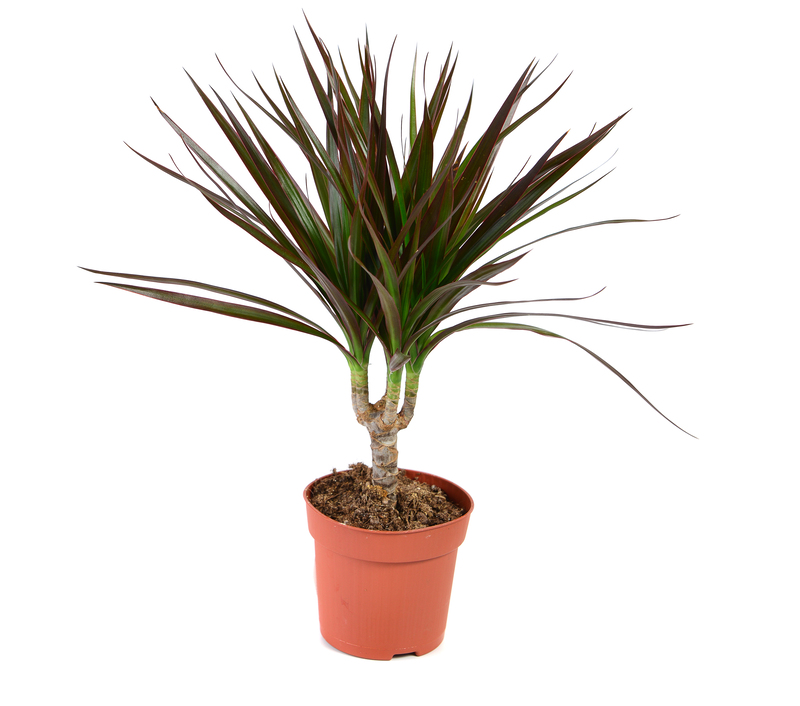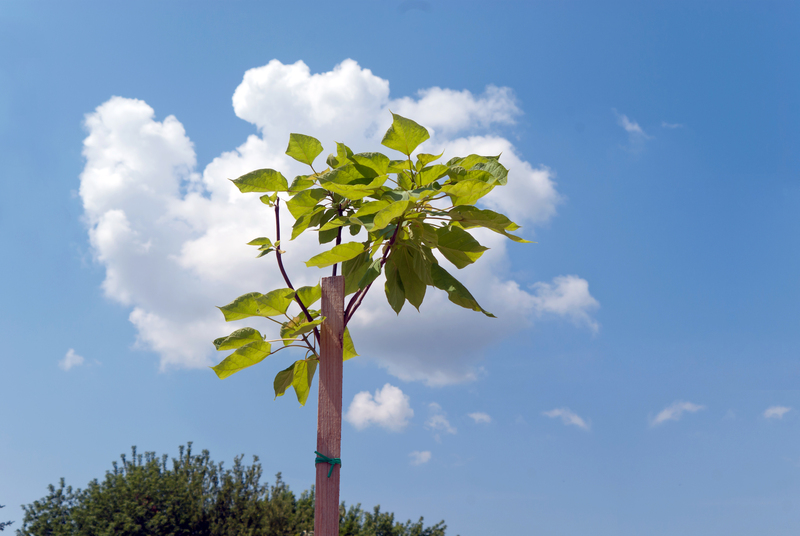Explore Inexpensive Ways to Simplify Your Garden
Posted on 08/09/2025
Explore Inexpensive Ways to Simplify Your Garden
Are you searching for clever, cost-effective ways to create a gorgeous yet low-maintenance garden? Simplifying your outdoor space doesn't require a huge budget or professional landscaping. With a few smart strategies, you can design a beautiful, manageable garden that saves time and money while still providing year-round enjoyment.
In this comprehensive guide, we'll explore affordable methods to streamline your gardening, reduce upkeep, and infuse your backyard with charm and practicality.

Why Simplify Your Garden?
Today's busy lifestyles make it harder to dedicate hours each week to weeding, pruning, and watering. By simplifying your garden space, you can:
- Save time on regular maintenance
- Cut unnecessary expenses related to complex landscaping
- Reduce environmental impact by using fewer resources
- Maximize enjoyment--spend less time working and more time relaxing outdoors
Let's dive into inexpensive ways to make your garden low effort--without compromising on style or personal touches.
Low Cost Garden Simplification: Planning First
1. Assess Your Current Garden Layout
Before making changes, take the time to evaluate your current outdoor space. Note which plants and features require the most care. Consider what works and what doesn't. Pay attention to:
- High-maintenance flower beds
- Thirsty, delicate plants
- Overgrown shrubs or hedges
- Areas prone to weeds
Understanding your garden's challenges helps you focus your efforts for the biggest payoff.
2. Set Realistic Gardening Goals
Ask yourself--what do you want your garden to achieve? Are you craving a tranquil retreat, a kid-friendly play space, or a lush environment brimming with wildlife? Clearly defining your vision guides your decisions on which areas to simplify and how to allocate your budget effectively.
Budget-Friendly Gardening Ideas for a Simple Yard
3. Replace High-Maintenance Lawns
Lawns can demand frequent mowing, watering, and fertilizing. By reducing your grassy area, you'll instantly create a more manageable garden. Try these affordable lawn alternatives:
- Mulched beds: Cover unused grassy sections with mulch for a tidy, weed-resistant finish
- Ground covers: Hardy plants like clover, creeping thyme, or vinca require less upkeep than turf
- Gravel paths: Gravel or stepping stones look pretty and cut down on mowing
Transitioning away from large expanses of lawn is an excellent way to simplify garden care and cut down on chores.
4. Choose Easy-Care Plants
Opt for resilient, low-maintenance plant varieties that thrive in your local climate. Some good options include:
- Native species: Adapted to your area, needing less water and fertilizer
- Perennials: Return year after year with minimal intervention
- Shrubs and evergreens: Offer structure and color with little pruning
- Drought-tolerant plants: Like lavender, sedum, or ornamental grasses
Remember, less really can be more! Group plants with similar needs together (a technique called "hydrozoning") to simplify watering and care.
5. Incorporate Mulch Everywhere
Mulching is a budget-friendly secret weapon for garden simplification. Organic mulch--like wood chips, straw, or bark--offers several benefits:
- Suppresses weeds and reduces the need to weed often
- Helps soil retain moisture, minimizing watering
- Regulates soil temperature and protects roots
- Improves soil quality as it breaks down naturally
Apply a thick layer (2-4 inches) of mulch to new and existing beds for maximum impact. For a frugal hack, source free wood chips from local tree cutting companies!
6. Simplified Garden Borders and Edging
Complex, fussy borders can be a headache to maintain. Instead, embrace simple, effective garden edging by:
- Using inexpensive natural materials (e.g., rocks, reclaimed bricks, or logs)
- Choosing low-growing ground covers as living edges
- Opting for wide, sweeping curves instead of intricate shapes
A neat edge not only simplifies mowing and weeding but gives your garden a tidy, finished appearance.
DIY Projects: Easy and Affordable Garden Upgrades
7. Use Raised Beds for Organized Gardening
Raised beds are an ideal way to keep your garden simple and manageable. They're inexpensive to build with reclaimed timber, bricks, or even fabric grow bags, and they:
- Reduce bending and kneeling, making planting and harvesting easier
- Prevent soil compaction and improve drainage
- Minimize weed problems and keep plants contained
- Offer an ideal home for herbs and vegetables
Plan a few small, easily accessible raised beds to streamline your edible gardening efforts.
8. DIY Compost Bins
Composting is a win-win for the environment and your wallet. Build a simple compost bin from repurposed pallets or wire mesh. Composting:
- Reduces your household waste
- Produces nutrient-rich soil for your garden beds
- Eliminates the need for costly fertilizers
Integrating a compost bin supports a healthy, chemical-free garden, and it's free to maintain!
9. Upcycling and Repurposing in the Garden
Give new life to everyday objects as budget-friendly garden features. For example:
- Old tires, crates, or buckets as quirky planters
- Salvaged wood as garden borders, trellises, or seating
- Mason jars or bottles for DIY lanterns and bird feeders
Not only do these projects save you money, but they add unique personality to your simplified garden.
Smart Watering Techniques for an Easy-Care Garden
10. Install a Drip Irrigation System
Drip irrigation is an efficient watering method that delivers moisture directly to plant roots--reducing waste, disease, and labor. Kits are available for as little as $30 and can make a big difference in simplifying garden maintenance.
11. Use Rain Barrels
Collecting rainwater is an eco-friendly and inexpensive way to water your garden during dry spells. Repurpose a large barrel and fit it with a spigot for easy access. Rain barrels help lower water bills and ensure your garden thrives in all seasons.
Encourage Biodiversity with Minimal Intervention
12. Attract Beneficial Wildlife
Low-effort gardens benefit greatly from birds, bees, and butterflies. Encourage these natural helpers by:
- Planting pollinator-friendly flowers (like yarrow, cosmos, and echinacea)
- Adding birdhouses, bee hotels, and shallow bird baths
- Leaving a few untidy areas for sheltering insects and small mammals
Nature will lend a hand controlling pests--freeing you from chemical sprays and excess work!
13. Let Your Garden Evolve Naturally
Sometimes the best way to simplify your gardening is to let nature take its course. Choose a corner to let be a bit wild. This reduces maintenance, supports biodiversity, and gives your garden a relaxed, organic look.
Seasonal Chores: Keep Them Simple
14. Mulch Every Spring and Autumn
Reapplying mulch twice a year keeps your beds looking neat and reduces spring weeding. Schedule it as your main seasonal task for maximum long-term savings.
15. Prune Smart, Not Hard
Focus on shaping or removing only what's necessary for plant health and aesthetics. Use sharp, quality tools and avoid over-pruning. Simpler plant choices mean less to trim each season.
Hiring Help? Keep It Minimal
If your circumstances allow, consider hiring periodic help for big jobs (like tree pruning or seasonal cleanup). With a streamlined garden, you'll need less professional intervention--saving you money over time.
Small Space, Small Budget? Simple Garden Design Tips
16. Embrace Container Gardening
Container gardens are perfect for balconies, patios, or small yards. They're easy to rearrange, maintain, and require fewer resources than traditional beds.
- Use upcycled containers for a creative, eco-friendly touch
- Opt for slow-growing or trailing species for year-round interest
- Mulch pots to retain moisture and suppress weeds
17. Prioritize Multipurpose Features
Maximize every element in your garden:
- Seating with built-in storage
- Vertical planters that double as privacy screens
- Trellises supporting flowering vines and acting as decorative dividers
Multipurpose elements help you get more from less--perfect for simplifying on a budget!

Quick Tips for an Effortlessly Beautiful Garden
- Keep walkways wide and accessible for easy navigation and tidiness
- Plant in masses and larger groupings for a cohesive look requiring less fuss
- Limit your plant palette: Fewer types mean less variable care and a unified appearance
- Accept imperfection: A few weeds and wild corners are part of a relaxed, simplified garden
- Place mulch or gravel beneath shrubs to eliminate maintenance-heavy lawn areas
Conclusion: Enjoy Your Relaxed, Budget-Smart Garden
Simplifying your garden doesn't mean sacrificing beauty or creativity. By focusing on easy-care plants, clever design, and affordable gardening solutions--like mulching, composting, and upcycling--you'll gain more time to savor your outdoor haven. Adapt the ideas above to your preferences, and remember: Gardening should be enjoyable, not exhausting or expensive!
Start small, keep it simple, and watch your tranquil, wallet-friendly garden flourish for years to come. For more tips and inspiration on budget garden simplification, revisit this guide anytime. Happy gardening!
Latest Posts
Building Lush Gardens with Composting Innovations
Maximize Your Garden's Potential with Creative Seating Ideas
How community gardens are helping to combat climate change

